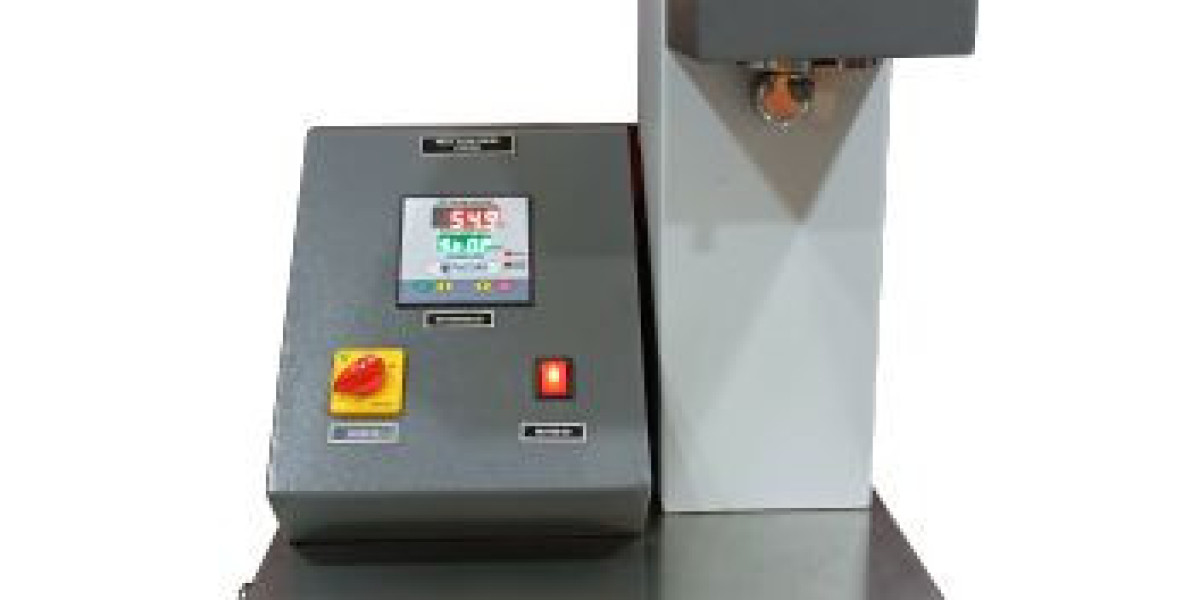The Melt Flow Index (MFI) Tester is a crucial instrument in the field of polymer testing. It plays a vital role in ensuring the quality and consistency of plastic materials. This article delves into the significance of the MFI tester, its working principles, applications, and its impact on the plastic manufacturing industry.
Understanding the Melt Flow Index Tester
The Melt Flow Index Tester measures the flow rate of melted plastic under specific conditions of temperature and pressure. This flow rate is an indicator of the polymer’s viscosity and molecular weight distribution, which are critical parameters in determining the material's processability and performance.
Working Principle
The MFI test involves heating a polymer sample until it melts and then forcing it through a die using a specified weight. The amount of polymer extruded in a given time is measured and expressed as the melt flow rate (MFR) in grams per 10 minutes. The test conditions, including the temperature and applied load, are standardized according to international standards such as ASTM D1238 and ISO 1133.
Key Components of the MFI Tester
- Heating Chamber: Maintains the test temperature with high precision.
- Piston and Die: The piston applies the load to extrude the polymer through the die.
- Timer and Weighing System: Measures the amount of polymer extruded in a set time.
Applications of the MFI Tester
The MFI tester is widely used in various stages of polymer production and processing:
- Raw Material Quality Control: Ensures the consistency of polymer batches before processing.
- Process Optimization: Helps in selecting the right processing conditions for extrusion, injection molding, and other manufacturing techniques.
- Product Development: Assists in formulating new materials with desired flow properties.
- Regulatory Compliance: Ensures that materials meet industry standards and specifications.
Importance in the Plastic Industry
- Quality Assurance: Regular MFI testing ensures that polymer materials have the required flow characteristics, leading to consistent product quality.
- Cost Efficiency: Identifying the optimal processing conditions reduces material waste and energy consumption.
- Product Performance: Materials with the correct melt flow properties perform better in their end-use applications, enhancing product reliability and lifespan.
Advancements in MFI Testing
Recent advancements in MFI testing technology have led to the development of automated testers that offer higher precision and repeatability. These advanced testers come with features such as:
- Automated Sample Loading: Reduces human error and improves test consistency.
- Digital Controls and Data Logging: Provides accurate control of test parameters and easy data management.
- Multi-Weight Testing: Allows testing under multiple loads in a single test cycle, providing a comprehensive flow profile of the material.
Conclusion
The Melt Flow Index Tester is an indispensable tool in the polymer industry, providing critical insights into the flow properties of plastic materials. By ensuring material consistency and optimizing processing conditions, the MFI tester plays a pivotal role in maintaining high standards of quality and efficiency in plastic manufacturing. As technology advances, the capabilities of MFI testers continue to improve, further enhancing their value in the industry.
Whether you are involved in quality control, process optimization, or product development, understanding and utilizing the Melt Flow Index Tester can significantly contribute to your success in the competitive field of polymer manufacturing.
FAQ: Melt Flow Index Tester
1. What is a Melt Flow Index Tester?
A Melt Flow Index (MFI) Tester is an instrument used to measure the flow rate of melted plastic materials. It provides an indication of the polymer's viscosity and molecular weight distribution, which are essential for understanding its processability and performance.
2. Why is Melt Flow Index testing important?
Melt Flow Index testing is crucial for ensuring the quality and consistency of polymer materials. It helps in determining the suitability of a polymer for specific processing techniques and end-use applications. Consistent MFI values ensure reliable product performance and compliance with industry standards.
3. How does the Melt Flow Index Tester work?
The MFI tester heats a polymer sample until it melts and then forces it through a die using a specified weight. The amount of polymer extruded in a given time is measured and expressed as the melt flow rate (MFR) in grams per 10 minutes. Standardized test conditions, such as temperature and load, are used to ensure accurate results.
4. What are the key components of a Melt Flow Index Tester?
The primary components of an MFI tester include:
- Heating Chamber: Maintains precise test temperatures.
- Piston and Die: The piston applies the load to extrude the polymer through the die.
- Timer and Weighing System: Measures the extruded polymer's amount in a set time.
5. What materials can be tested with an MFI Tester?
The MFI tester is used to test a wide range of thermoplastic materials, including polyethylene (PE), polypropylene (PP), polystyrene (PS), and various engineering plastics. It is suitable for both virgin polymers and recycled materials.
6. How are the test conditions for MFI testing determined?
Test conditions, such as temperature and applied load, are determined based on international standards like ASTM D1238 and ISO 1133. These standards provide specific guidelines for testing different types of polymers to ensure consistency and comparability of results.
7. What is the significance of the Melt Flow Rate (MFR)?
The Melt Flow Rate (MFR) indicates the ease with which a polymer can flow when melted. A higher MFR means the material flows more easily, which is useful for processes like injection molding. Conversely, a lower MFR indicates a higher viscosity, suitable for applications requiring more robust mechanical properties.
8. How does MFI testing help in quality control?
MFI testing ensures that polymer batches have consistent flow properties, which is vital for maintaining uniformity in production. It helps detect any variations in raw material quality that could affect the final product's performance.
9. Can MFI testing be automated?
Yes, advancements in MFI testing technology have led to the development of automated testers. These machines offer higher precision, repeatability, and features like automated sample loading, digital controls, data logging, and multi-weight testing capabilities.
10. What are the common applications of MFI testing?
MFI testing is commonly used in:
- Raw Material Quality Control: Ensuring consistency in polymer batches.
- Process Optimization: Selecting the right processing conditions.
- Product Development: Formulating new materials with desired flow properties.
- Regulatory Compliance: Meeting industry standards and specifications.
11. How do I choose the right Melt Flow Index Tester for my needs?
Choosing the right MFI tester depends on your specific requirements, such as the types of polymers you test, the volume of testing, and the need for automation. It's essential to consider the precision, repeatability, and additional features like automated loading and data management.
12. Can MFI testing be used for recycled plastics?
Yes, MFI testing is valuable for assessing the flow properties of recycled plastics. It helps in determining the suitability of recycled materials for various applications and ensures that they meet the required quality standards.
13. How often should MFI testing be performed?
The frequency of MFI testing depends on your production process and quality control protocols. Regular testing is recommended to ensure consistent material quality and to identify any variations that could impact product performance.
14. What are the latest advancements in MFI testing technology?
Recent advancements include automated testers with features like:
- Automated Sample Loading: Reduces human error.
- Digital Controls and Data Logging: Enhances accuracy and ease of data management.
- Multi-Weight Testing: Provides a comprehensive flow profile of the material.
15. Where can I find more information about Melt Flow Index Testers?
For more information about Melt Flow Index Testers and their applications, you can visit industry websites, consult technical standards (ASTM D1238, ISO 1133), or reach out to manufacturers and suppliers of testing equipment.



